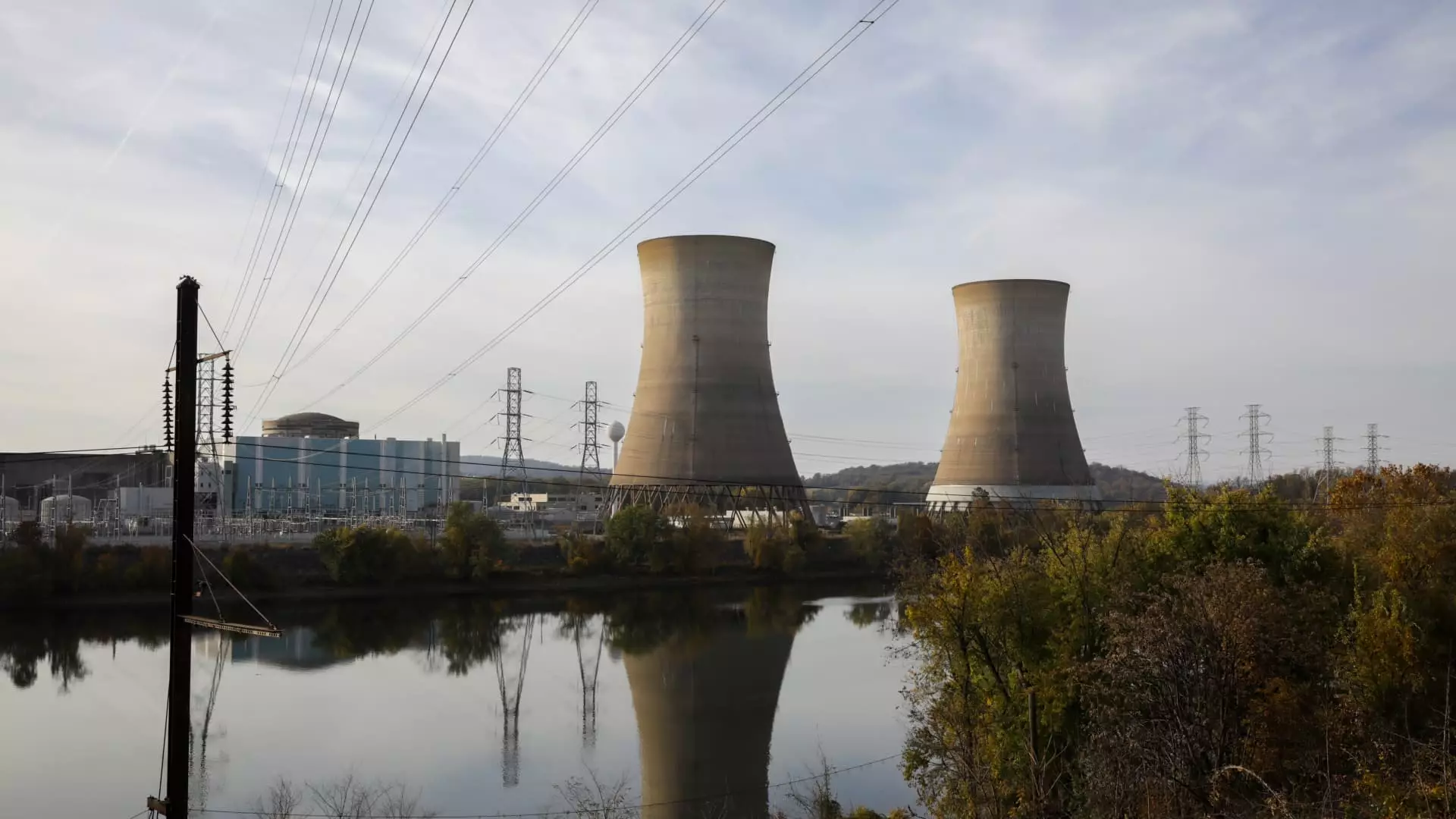The intersection of artificial intelligence (AI) and energy consumption is a rapidly evolving phenomenon, with significant implications for power companies globally. A recent surge of apprehension among investors has been triggered by the emergence of China’s DeepSeek open-source AI laboratory. This shift in the AI landscape has led to skepticism regarding the energy requirements of AI applications, particularly as major power companies historically positioned themselves to benefit from burgeoning demand linked to artificial intelligence technologies. A wave of stock declines among companies like Constellation Energy, Vistra, GE Vernova, and Talen Energy signals a growing concern over the sustainability of predicted energy demand driven by AI advancements.
On a notably tumultuous Monday for the stock market, companies closely tied to the tech sector and its reliance on data centers experienced steep declines in share prices. Constellation Energy and Vistra saw drops exceeding 16%, while GE Vernova’s shares plummeted by nearly 18%. The outflow of capital from these stocks stemmed from investor fears that AI breakthroughs, particularly those emerging from China, might alter the expected trajectory of power consumption needs. The launch of DeepSeek’s AI model—touted by industry insiders as revolutionary—caused a reevaluation of earlier projections that anticipated substantial increases in electricity consumption to support data centers.
The tech community realized that advancements like the DeepSeek-R1 reasoning model—capable of competing with OpenAI’s renowned models—could potentially mean that AI applications might not be as energy-intensive as once believed. This revelation, combined with heightened competition from global players, significantly reshaped expectations and investor sentiment, leading to substantial market fluctuations.
Historically, the anticipation of increased demand due to AI’s popularity spurred power companies to explore renewable energy sources, particularly nuclear power, as viable options to fuel data centers. Constellation Energy’s agreement with Microsoft for potential recommencement of operations at the Three Mile Island nuclear plant exemplifies this strategy. It reflects a growing recognition of the need to align energy supply with the evolving demands of the tech sector while also committing to carbon-free initiatives.
Even as companies like Talen Energy incorporated nuclear energy to power Amazon’s data center, the market’s recent jitters have caused analysts, including those from Bank of America, to challenge the earlier assumption of robust demand for cloud capital expenditures, semiconductor growth, and overall energy requirements. The unintended consequence of the AI rivalry may create a more complex energy landscape where traditional expectations are disrupted and investment patterns are redefined.
One critical aspect highlighted by analysts is the urgent need for investment in electrical grids within the U.S. and Europe. Despite the progress made in tapping into cleaner energy sources to support tech infrastructure, the existing grids face challenges in scaling up to accommodate potential shifts in load demands. As Bank of America analysts pointed out, under-investment in electrical infrastructure poses a significant bottleneck for meeting both current and future energy requirements.
As AI technologies evolve and integrate deeper into societal functions, the balancing act for energy providers will revolve around ensuring adequate infrastructure capable of supporting this transformative wave. The potential for AI to redefine energy consumption patterns underscores the necessity for strategic planning and investment from both tech companies and energy providers.
The intersection of AI advancements and power demand is characterized by uncertainty, and recent market reactions reflect this complexity. While companies like Constellation, Vistra, GE Vernova, and Talen Energy have made strides to align themselves with the projected growth in AI, the recent turbulence raises questions about sustainability and the dynamics of competition in the global arena.
Looking ahead, energy providers must remain adaptive and resilient, ready to pivot as new technologies upset the status quo. The potential for AI’s widespread adoption to reshape energy consumption patterns cannot be ignored, suggesting that ongoing dialogue and collaborative efforts between tech firms and power companies will be crucial in forging a sustainable energy future that aligns with the evolving demands of a digitally driven landscape.

